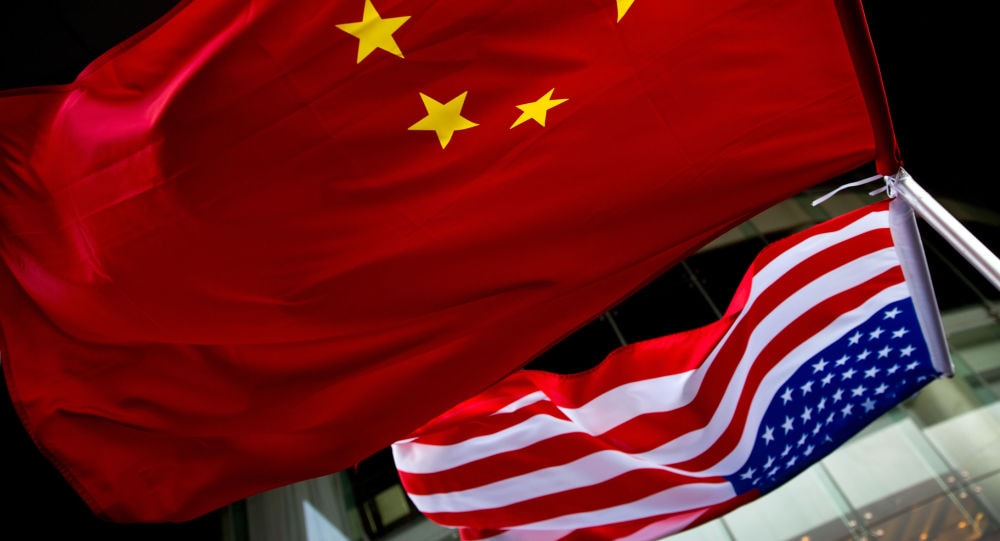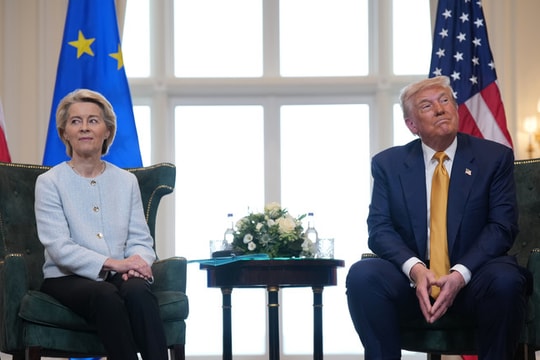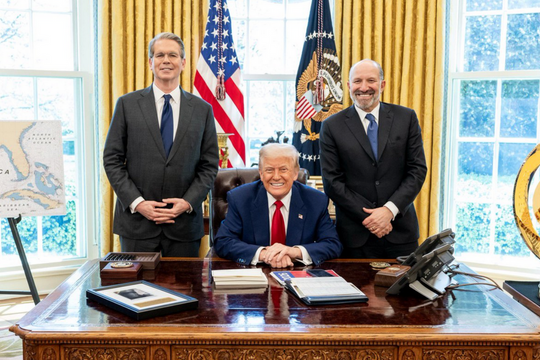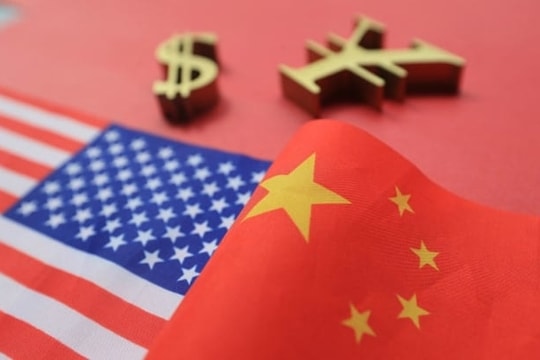Are American companies in China in trouble?
US President Donald Trump has ordered a 10% tariff on $200 billion worth of Chinese goods. The tariff will take effect on September 24. At the same time, the possibility of increasing the tariff to 25% from next year is not ruled out.
 |
| Chinese and American flags. |
This time, issuing a 10% tariff on $200 billion worth of Chinese goods, Trump emphasized that if China takes any retaliatory action, the US will not hesitate to tax the rest of China's exports - $268 billion. As you can see, this trade war is serious and long-term.
China could not help but react, also announced its intention to impose 10% tariffs on US goods worth 60 billion USD, and also from September 24. The Chinese Ministry of Commerce announced that it would be forced to take synchronous countermeasures to protect its legitimate interests and international trade freedom.
It is not a question of synchronous measures, but of asymmetric measures. China and the United States will not be able to compete on tariffs: the $375 billion trade imbalance is inevitable. Beijing has previously said that it could adopt qualitative measures. This could be, first of all, large tariffs, albeit on a smaller total. Second, it could be a series of different administrative barriers for American companies. The US-China Business Council recently said that China could complicate licensing for American companies before stabilizing economic relations between the two countries. The statement cited anonymous Chinese officials who apparently threatened to make things difficult for American companies. Officially, there is no confirmation of this threat. Nevertheless, American corporations are concerned.
The problem is that, according to FactSet Research Systems Inc., China accounted for 19 percent of Apple’s global market share last year, 24 percent of Intel’s, 65 percent of Qualcomm’s, and 20 percent of Starbucks’. The current Chinese government is careful to show that the success of companies depends largely on it. It last year refused to grant a license to open a Facebook branch, citing improper filings. Or it suspended the acquisition of Qualcomm NXP, thereby imposing the first $2 billion fine. So, of course, the local government has administrative levers to influence American companies in China.
Particularly sensitive to the actions of the Chinese government are companies operating in the service sector. Last year, the US provided China with $58 billion in services, but received only $18 billion in return. Surplus - $40 billion. According to data from the US Bureau of Economic Analysis, more than half of this amount went to education and tourism services. In the tourism sector, the Chinese government can significantly disrupt American life. There has been such a precedent. For example, after Seoul decided to deploy the THAAD missile defense system on South Korean territory, the Chinese media launched a massive anti-South Korean campaign, causing the number of tourists from China to South Korea to decrease by 60-70%.
But most importantly, as expert Chen Fengying of the Institute of World Economy at the China Institute of Contemporary International Relations commented in an interview with Sputnik, «the trade war hits American companies operating in the US domestic market and also hits ordinary consumers. Because the tariffs imposed by the US will violate the entire global supply chain.»
"The impact will be huge, both in China and in the United States itself. The goods in the $200 billion tariff list are mainly labor-intensive products. And won't the United States feel the consequences for itself? First, for consumers, the price of those goods will increase significantly. For China, of course, this is also sensitive, but not only for China, but for the whole world. It's not about the $50 billion scale as previously mentioned, but about $200 billion. It will affect the interests of investors around the world. This is even sensitive psychologically, because there has never been a tax on such a total amount of goods before."
Indeed, the world’s two largest economies are so intertwined that both are suffering from the trade war. For example, in his efforts to punish Chinese factories, Trump is also hitting his country’s tech companies. Apple is currently struggling with the rising costs of making headphones, battery chargers, and Apple Watches. And while Trump might respond by saying to bring production back home, businesses have reasons to object. Intel estimates that moving even one company’s packaging out of China would cost between $650 million and $875 million.
China itself is also in pain as Beijing has to strike in this trade showdown.
"Because with each new round of sanctions, the capitalization of domestic companies decreases. Meanwhile, investors' concerns increase, leading to capital outflows from the country and the subsequent fall of the local currency exchange rate. In any case, neither side wants to give up and is determined to fight a long-term battle," said expert Chen Fengying.
"The United States is holding a knife by the blade. It is likely that the United States is waiting for us to surrender. We are waiting for the United States to reach a turning point. Of course, negotiations are needed, concessions are needed. But it must be mutual compromise, not one-sided concessions. China and the United States are the two biggest powers. Neither side will give in. Even Mexico and Canada will not comply, let alone China. Pressure and coercion will not bring results. There may be some special situation, for example, unexpected problems in the US economy, that will force the United States to the negotiating table. But even if this happens, it will probably not be in the near future."





